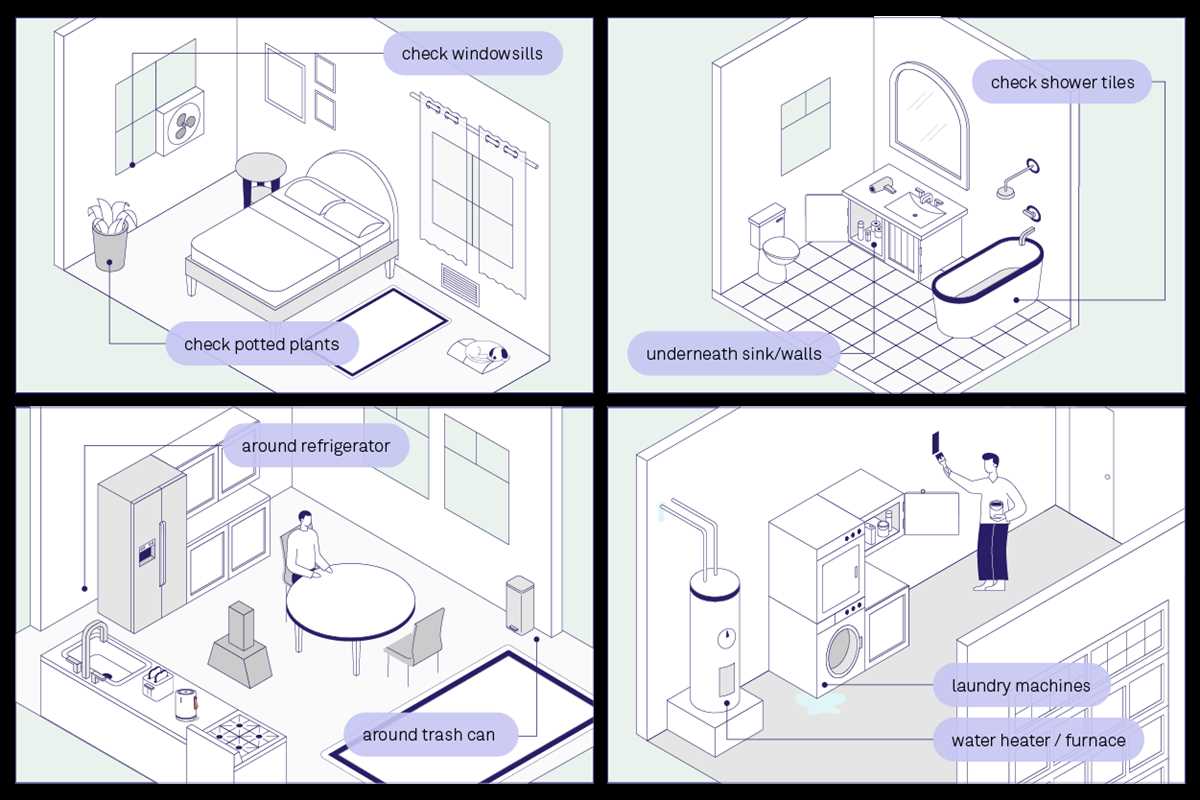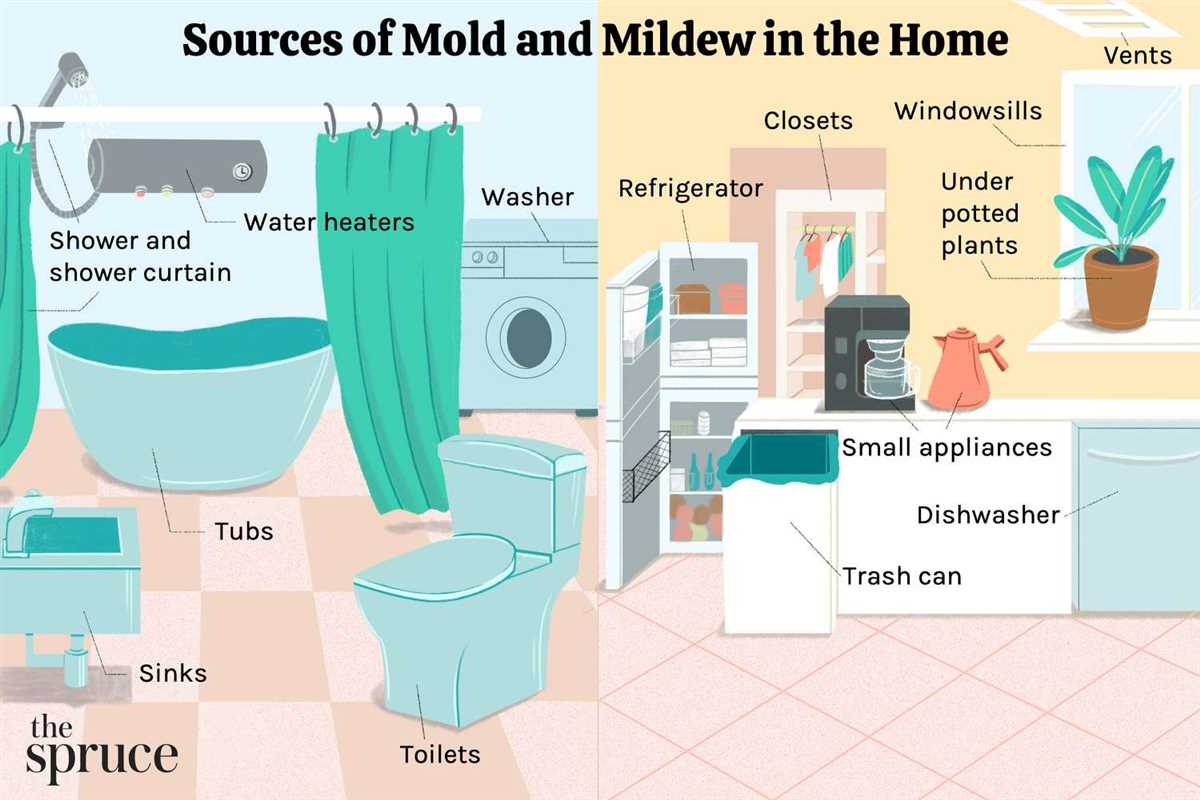




Having an earthy smell in your house can be both unpleasant and concerning. It may remind you of damp soil or a musty basement, and can leave you wondering where the smell is coming from and how to get rid of it. In this article, we will explore some potential sources of an earthy smell in the house and provide some solutions to help eliminate the odour.
One common source of an earthy smell in the house is mould or mildew. These fungi thrive in damp environments and can easily grow in areas with high moisture levels, such as bathrooms, basements, or areas affected by water leaks. The musty odour that often accompanies mould or mildew can linger in the air and on surfaces, making it difficult to eliminate without addressing the underlying issue.
Another potential cause of an earthy smell in the house is decaying organic matter. This might include forgotten food, plants, or even dead animals that have found their way into hidden corners or crevices of your home. As these organic materials break down, they release a distinct earthy odour that can permeate the surrounding area.
Additionally, a sewer or sewage backup can also be responsible for an earthy smell in the house. When pipes become clogged or damaged, sewage can leak into the surrounding soil or even back up into your home. The resulting odour is often described as earthy or foul, and requires immediate attention to prevent further damage and health hazards.
Now that we have identified some potential sources of an earthy smell in the house, it’s time to explore some solutions. Depending on the cause, you may need to take different steps to eliminate the odour effectively. This may include repairing leaks, improving ventilation, using odour absorbers, or calling professionals to address more serious issues like mould or sewage leaks. By addressing the underlying problem and taking proactive measures, you can successfully remove the earthy smell and create a fresh and pleasant living environment.
Potential Sources of an Earthy Smell in the House
-
Mold and Mildew
If you notice an earthy smell in your house, one potential source could be mold and mildew. Mold and mildew thrive in moist environments, so if there is excess moisture in your home, it can lead to the growth of these fungi. Common areas where mold and mildew can develop include bathrooms, basements, and areas with poor ventilation. To address the earthy smell caused by mold and mildew, it is essential to identify and address the source of moisture and then clean and remove the mold properly.
-
Musty Odors
Musty odors can also contribute to an earthy smell in the house. This smell is often associated with older homes or areas with poor air circulation. Musty odors can be caused by a variety of factors, including old furniture, carpets, or even stored items that have absorbed moisture. To eliminate the musty smell, it is important to identify and remove any sources of dampness or moisture, clean and air out the affected areas, and consider using dehumidifiers or air purifiers.
-
Pets and Pet Odors
If you have pets in your house, their presence can contribute to an earthy smell. Pets, especially if they spend a lot of time indoors, can bring in dirt, mud, and other organic materials that can create an earthy odor. Additionally, pet urine and feces can leave behind a lingering smell. Regular cleaning and grooming of pets, as well as keeping their bedding and litter boxes clean, can help reduce pet odors and the associated earthy smell in the house.
-
Rotting Organic Matter
Another potential source of an earthy smell in the house could be rotting organic matter. This can include food waste that has been left out or forgotten, plants that have decayed, or even dead animals. If you notice a strong earthy smell that resembles rotting or decaying matter, it is important to locate and remove the source of the odor. Regular cleaning and proper disposal of waste can help prevent the buildup of rotting organic matter and eliminate the associated smell.
-
Moisture and Dampness

Excess moisture and dampness in the house can create an environment that fosters the growth of mold, mildew, and bacteria, resulting in an earthy smell. Common sources of moisture and dampness include leaks in plumbing, roofs, or windows, high humidity levels, and poor ventilation. It is crucial to address these issues by fixing any leaks, improving ventilation, and ensuring proper moisture control to eliminate the earthy smell caused by excess moisture.
Top Rated9000 BTU Portable Air ConditionerAll-in-one cooling solution for any roomThis versatile unit not only cools but also dehumidifies and functions as a fan, perfect for any small to medium-sized space.
Mold and Mildew

Mold and mildew are common culprits for causing an earthy smell in the house. These fungi can thrive in damp and poorly ventilated areas, such as basements, bathrooms, and kitchens. They can be found on walls, ceilings, floors, and even on furniture and fabrics.
Mold and mildew release spores into the air, which can not only cause unpleasant odors but also lead to respiratory problems and allergies. It is crucial to identify and address the source of mold and mildew to prevent further damage and to maintain a healthy living environment.
Causes of Mold and Mildew
The main cause of mold and mildew growth is moisture. Excessive humidity, water leaks, condensation, and poor ventilation contribute to creating a favorable environment for their development.
High humidity: Areas with high humidity levels, such as bathrooms and basements, are particularly susceptible to mold and mildew growth. The excess moisture from showers, baths, and cooking can linger in the air and create a breeding ground for these fungi.
Water leaks: Any water leaks, whether from pipes, roofs, or appliances, can create a damp environment that encourages mold and mildew growth. It is crucial to fix any leaks as soon as they are detected.
Condensation: Condensation can occur when warm air comes into contact with cold surfaces, such as windows and walls. This moisture accumulation can promote the growth of mold and mildew if not properly ventilated.
Poor ventilation: Insufficient airflow and ventilation can trap moisture indoors and prevent it from escaping. Areas with poor ventilation, such as closed-off rooms and closets, are more likely to have mold and mildew problems.
Preventing and Treating Mold and Mildew
To prevent mold and mildew growth, it is essential to control the moisture levels in your home. Here are some measures you can take:
- Keep humidity levels below 50% by using dehumidifiers or air conditioners.
- Fix any water leaks promptly and ensure proper insulation.
- Improve ventilation by opening windows, using exhaust fans, and installing vents.
- Regularly clean and dry areas prone to moisture, such as bathrooms, kitchens, and basements.
- Use mold-resistant paints and materials in areas susceptible to dampness.
If you already have mold and mildew growth in your house, you can take the following steps to address the issue:
- Identify and address the source of moisture and fix any leaks or ventilation problems.
- Clean affected areas with a mixture of water and detergent or a commercial mold cleaner.
- Use protective equipment, such as gloves and masks, when cleaning to avoid exposure to spores.
- Dispose of any moldy materials that cannot be cleaned, such as carpets or furniture.
- Consider hiring a professional mold remediation service for extensive or recurring mold problems.
Regular maintenance and vigilance in controlling moisture levels can help prevent mold and mildew from causing an earthy smell in your house and ensure a healthy living environment for you and your family.
Dampness and Moisture
Excess dampness and moisture in the house can be a common cause of an earthy smell. This can be caused by a variety of factors, including leaks, condensation, and high humidity levels. When there is excess moisture in the air, it can lead to the growth of mold and mildew, which can produce an earthy odor.
One of the most common sources of moisture in the house is leaks. Leaky pipes, roofs, or windows can allow water to seep into the walls, floors, or ceilings, creating a moist environment that is conducive to mold and mildew growth. If you suspect that a leak may be causing the earthy smell in your house, it is important to locate and repair the source of the leak as soon as possible.
Another source of dampness and moisture is condensation. Condensation occurs when warm air comes into contact with a cool surface, causing the moisture in the air to turn into water droplets. This commonly occurs in bathrooms, kitchens, and laundry rooms, where steam from showers, cooking, or washing machines can create a humid environment. To reduce condensation and prevent an earthy smell, it is important to properly ventilate these areas and remove excess moisture from the air.
High humidity levels can also contribute to dampness and moisture in the house. In areas with high humidity, such as basements or crawlspaces, the excess moisture in the air can seep into the walls and floors, leading to mold and mildew growth. To combat high humidity levels, it is important to use dehumidifiers and properly ventilate these areas.
To address dampness and moisture in the house, it is important to identify and fix any leaks, properly ventilate areas where condensation occurs, and use dehumidifiers in areas with high humidity levels. Additionally, regularly cleaning and drying areas prone to moisture, such as bathrooms and kitchens, can help prevent the growth of mold and mildew and eliminate the earthy smell.
Plumbing Issues
Plumbing issues can often be the cause of an earthy smell in the house. Here are a few potential plumbing problems that can lead to this unpleasant odour:
1. Sewer Backup
A sewer backup occurs when the sewage cannot flow properly through the pipes and ends up coming back into your home. This can happen due to a blockage in the sewer line, which can be caused by various factors such as tree roots, debris, or a damaged pipe. When the sewage starts to back up, it can release foul odours, creating an earthy smell in your house.
2. Leaking Pipes
Leaking pipes can also contribute to an earthy smell. When pipes are damaged or have cracks, moisture can accumulate, leading to the growth of mould and mildew. These fungi produce a musty odour that can be described as earthy. If you notice any water stains, dampness, or dripping sounds, it is advisable to have your plumbing system inspected to identify and fix any leaks.
3. Blocked Drain
A blocked drain can cause water to accumulate, resulting in bacteria growth and an earthy smell. This can happen in various areas of your home, such as the kitchen sink, bathroom drains, or basement floor drains. Hair, soap scum, food particles, and other debris can build up over time, leading to blockages. Regular drain cleaning and maintenance can help prevent this issue.
4. Ventilation Issues

If your plumbing system lacks proper ventilation, it can contribute to an earthy smell. Vent pipes are designed to release sewer gases and prevent them from entering your living spaces. If these vent pipes become blocked or damaged, the gases can accumulate and create unpleasant odours inside your home. Proper ventilation is crucial to keep your plumbing system functioning correctly and prevent odour issues.
If you suspect that plumbing issues may be the cause of the earthy smell in your house, it is recommended to contact a licensed plumber. They can inspect your plumbing system, identify any problems, and provide appropriate solutions to eliminate the odour.
Basement Problems
1. Poor Ventilation
If your basement has poor ventilation, it can lead to a buildup of moisture and foul odors. This can be caused by insufficient airflow, blocked vents, or a lack of windows. To improve ventilation, consider installing exhaust fans or dehumidifiers, and make sure that all vents are clear of obstructions.
2. Water Leakage
Water leakage is a common problem in basements, and it can lead to a musty smell. Check for signs of water damage such as water stains, wet patches on the walls or floor, or a damp feeling in the air. To fix this issue, identify the source of the leakage and repair any cracks or gaps in the walls or foundation. Consider waterproofing the basement to prevent future leaks.
3. Mold and Mildew Growth
Mold and mildew thrive in damp environments, and basements are often susceptible to moisture and high humidity levels. If you notice a musty odor accompanied by black spots or patches on the walls or belongings, you may have a mold or mildew problem. Remove any visible mold using a mixture of water and detergent, and improve ventilation and dehumidification to prevent its return.
4. Poor Drainage System
A faulty or inadequate drainage system can lead to standing water in the basement, which can result in a foul smell. Inspect your basement for signs of poor drainage, such as pooling water or dampness. Consider installing a sump pump or French drain to divert excess water away from the basement. Ensure that gutters and downspouts are clear and functioning properly.
5. Pest Infestations
Pests like rodents or insects can cause an earthy smell in the basement. Look for signs of pest activity, such as droppings, gnaw marks, or nests. If you have a pest infestation, take steps to eliminate the problem by sealing any entry points, setting traps, or calling a professional exterminator. Keeping the basement clean and free of food sources can help prevent future infestations.
6. Sewer or Plumbing Issues
Sewer or plumbing problems can cause foul odors to emanate from the basement. Check for any signs of a sewage backup or leaks in the plumbing system. If you suspect a problem, contact a plumber to inspect and repair the issue. Regular maintenance of your plumbing system can help prevent unpleasant odors and potential damage.
7. Damp or Wet Basement

If your basement is consistently damp or wet, it can lead to an earthy smell. Excess moisture can come from various sources such as leaking pipes, high humidity, or poor insulation. Identify and address the source of the moisture, and consider using a dehumidifier or improving the insulation to reduce moisture levels in the basement.
8. Dirty or Cluttered Space
A dirty or cluttered basement can contribute to unpleasant odors. Remove any garbage, debris, or moldy items from the basement and clean the space thoroughly. This includes vacuuming or sweeping the floors, wiping down surfaces, and airing out the area. Regular cleaning and organization can help prevent odors from developing.
| Problem | Potential Causes | Solutions |
|---|---|---|
| Poor Ventilation | Insufficient airflow, blocked vents, lack of windows | Install exhaust fans or dehumidifiers, clear vents |
| Water Leakage | Cracks or gaps in walls or foundation | Repair leaks, waterproof basement |
| Mold and Mildew Growth | Damp environment, high humidity | Remove mold, improve ventilation and dehumidification |
| Poor Drainage System | Standing water, inadequate drainage | Install sump pump or French drain, maintain gutters |
| Pest Infestations | Rodents, insects | Eliminate pests, seal entry points |
| Sewer or Plumbing Issues | Sewage backup, leaks | Contact plumber, regular maintenance |
| Damp or Wet Basement | Leaking pipes, high humidity, poor insulation | Identify source, use dehumidifier, improve insulation |
| Dirty or Cluttered Space | Ga
Pet OdorsPets, such as dogs and cats, can contribute to the earthy smell in the house. This can be particularly noticeable if the pets spend a lot of time indoors or if there are multiple pets in the house. Causes of Pet Odors:
Solutions:
If pet odors persist despite these solutions, it may be worth consulting a veterinarian to rule out any underlying health issues that could contribute to the odors. Solutions for an Earthy Smell in the HouseHaving an earthy smell in your house can be unpleasant and may indicate an underlying issue that needs to be addressed. Here are some solutions to consider: 1. Identify the source
Before you can effectively eliminate the earthy smell, it’s important to identify the source. The most common sources include mold, mildew, dampness, pests, and pet urine. Check for any visible signs of these issues and address them accordingly. 2. Improve ventilationPoor ventilation can contribute to a musty smell in the house. Ensure that your home has adequate ventilation by opening windows, using exhaust fans in bathrooms and kitchens, and considering the installation of a whole-house ventilation system if necessary. 3. Clean carpets and upholsteryCarpets and upholstery can absorb odors over time. Regularly clean these surfaces to remove any trapped smells. Vacuum carpets thoroughly, and consider steam cleaning them to deep clean and eliminate odors. For upholstery, follow the manufacturer’s guidelines for cleaning or consider professional cleaning services. 4. Eliminate moistureMoisture can lead to mold and mildew growth, which can cause an earthy smell. Take steps to eliminate excess moisture in your home by using a dehumidifier, fixing any leaks or water damage, and ensuring proper ventilation in areas prone to moisture, such as bathrooms and basements. 5. Use odor absorbersThere are various odor absorbers available on the market that can help eliminate unpleasant smells. Consider using activated charcoal, baking soda, or odor-absorbing gels or sprays in areas where the earthy smell is persistent. 6. Address pest infestationsPests, such as rodents or insects, can cause odors in the house. If you suspect a pest infestation, take steps to address it, such as sealing entry points, using traps or baits, and contacting a professional pest control service if necessary. 7. Clean and maintain drainsDrains can harbor unpleasant smells, especially if they are clogged or dirty. Regularly clean and maintain your drains by using drain cleaners or natural alternatives like vinegar and baking soda. 8. Keep your home cleanRegular cleaning can help prevent or eliminate earthy smells in your house. Sweep and mop floors, dust surfaces, clean kitchen appliances, and regularly launder linens, curtains, and rugs. Maintaining a clean living environment can go a long way in preventing odors. Trending Now
Fresh Wave Lavender Odor Elimination Gel Natural formula removes household odors
Keep your home smelling fresh with our plant-based gel that absorbs odors effectively and safely in any room.
9. Consult a professionalIf you’ve tried various solutions and the earthy smell persists, it may be best to consult a professional. They can help identify any underlying issues and provide specific recommendations tailored to your home. By implementing these solutions, you can effectively eliminate the earthy smell in your house and create a fresh and pleasant living environment. FAQWhat are some common sources of an earthy smell in the house?Some common sources of an earthy smell in the house include mold and mildew growth, dampness in the basement or crawl space, rotting vegetation or organic matter, and pet urine or feces. How can I identify the source of the earthy smell in my house?To identify the source of the earthy smell in your house, you can start by checking for any visible signs of mold or mildew growth. Inspect areas with excess moisture, such as the basement or crawl space. Look for any decaying vegetation or organic matter that may be causing the smell. If you have pets, check for any urine or feces that might be causing the odor. What are the potential health risks associated with an earthy smell in the house?An earthy smell in the house can indicate the presence of mold or mildew, which can release spores into the air and cause respiratory issues, such as allergies, asthma, and other respiratory tract infections. Inhaling pet urine or feces odor can also pose health risks, as it may contain bacteria or parasites. How can I get rid of the earthy smell in my house?To get rid of the earthy smell in your house, you can start by addressing the underlying cause. If it’s due to mold or mildew, clean and disinfect the affected areas. If there is dampness, try using dehumidifiers or improving the ventilation. Remove any decaying vegetation or organic matter. For pet urine or feces odors, clean the area thoroughly and consider using pet odor neutralizers. In some cases, professional help may be needed, especially for extensive mold or mildew issues. Must-Have
CLR Mold & Mildew Stain Remover Spray Bleach-free solution for tough stains
Effortlessly remove mold and mildew from various surfaces with our fast-acting, multi-purpose foam spray cleaner.
Video
£199.00

BISSELL SpotClean HydroSteam Carpet Cleaner
£289.00

Candy Smart Pro Washer Dryer with Wi-Fi
£113.99

SMOTURE Cordless Stick Vacuum Cleaner
£229.99

Dyson V8 Advanced Cordless Vacuum Cleaner |











